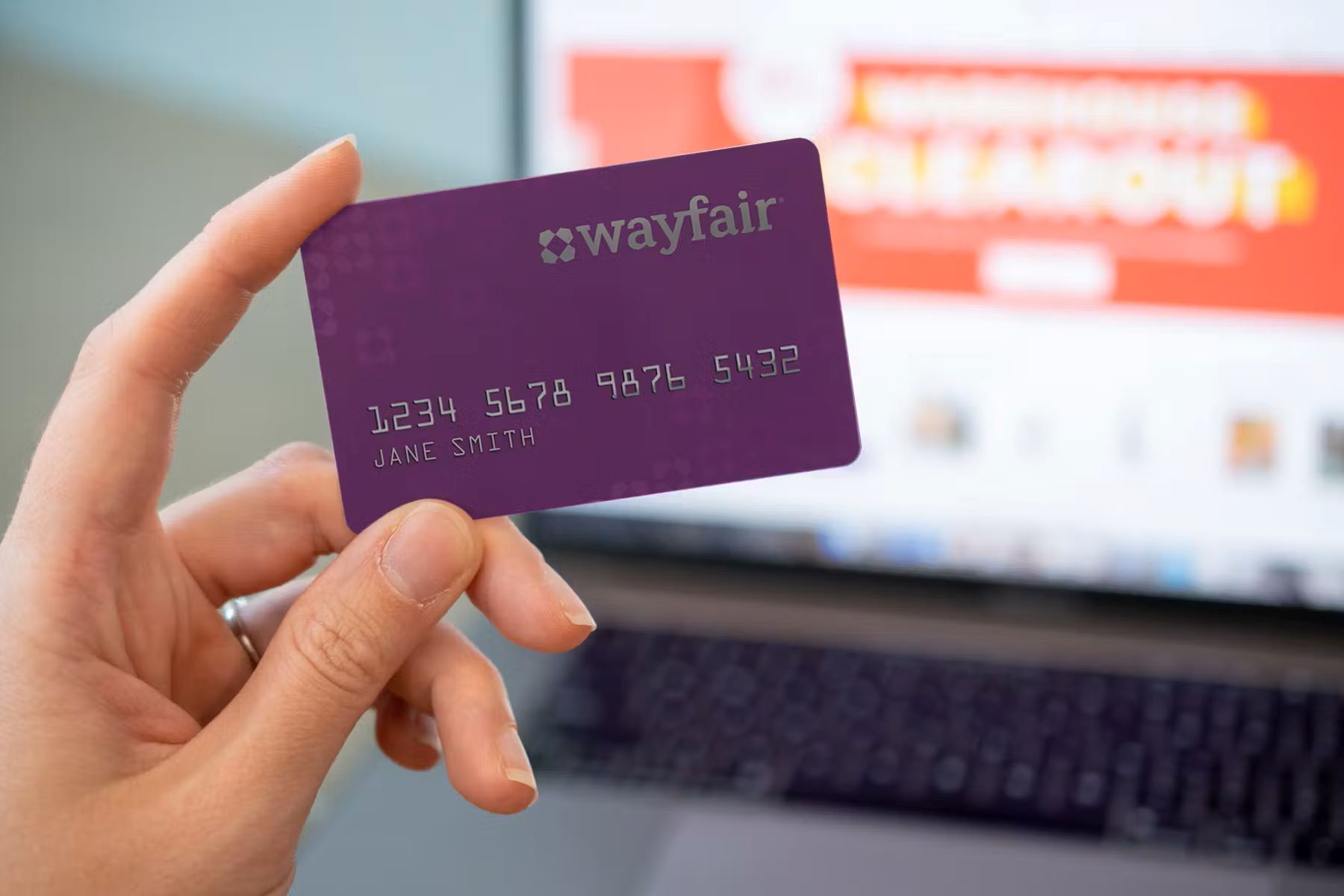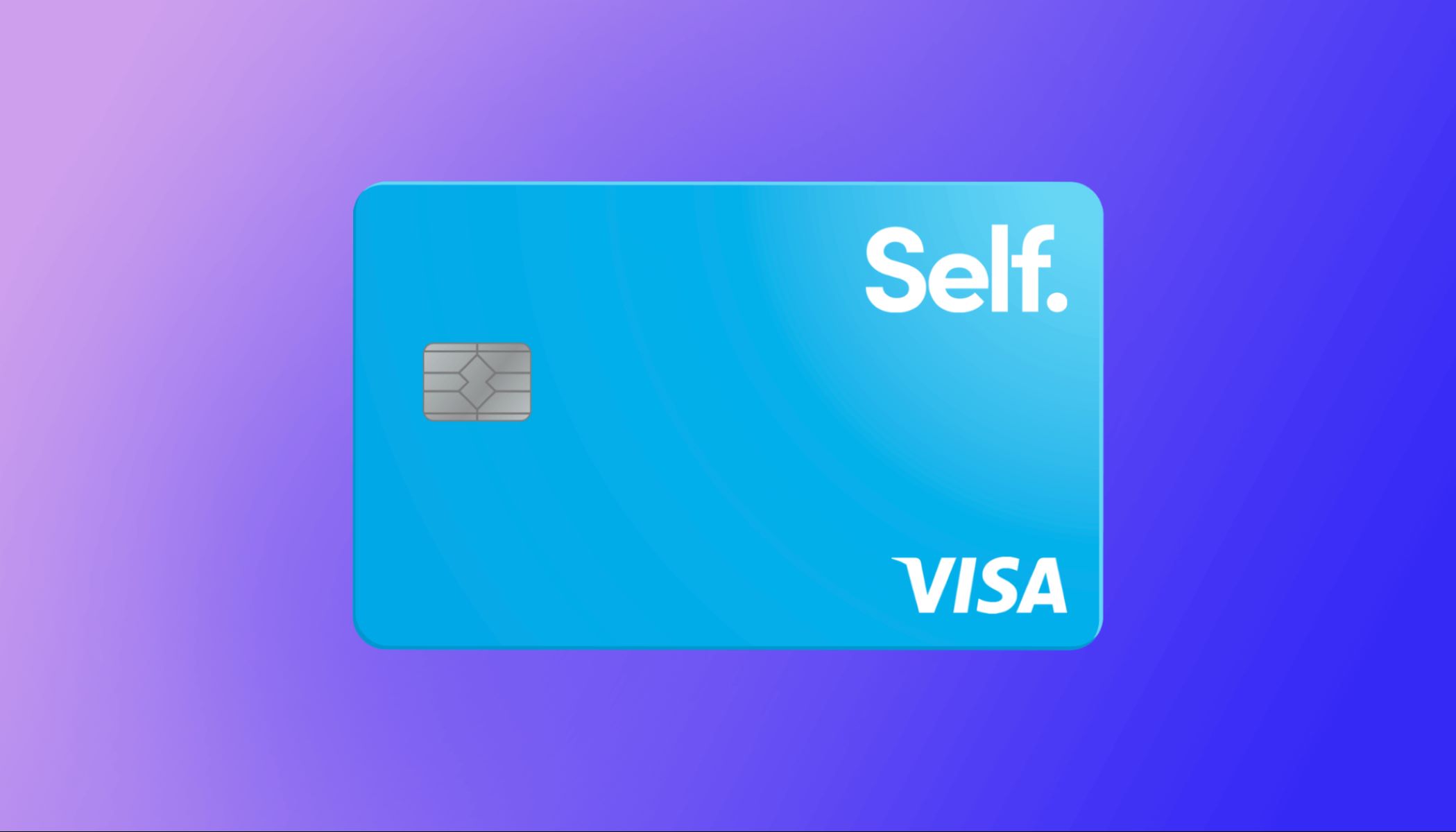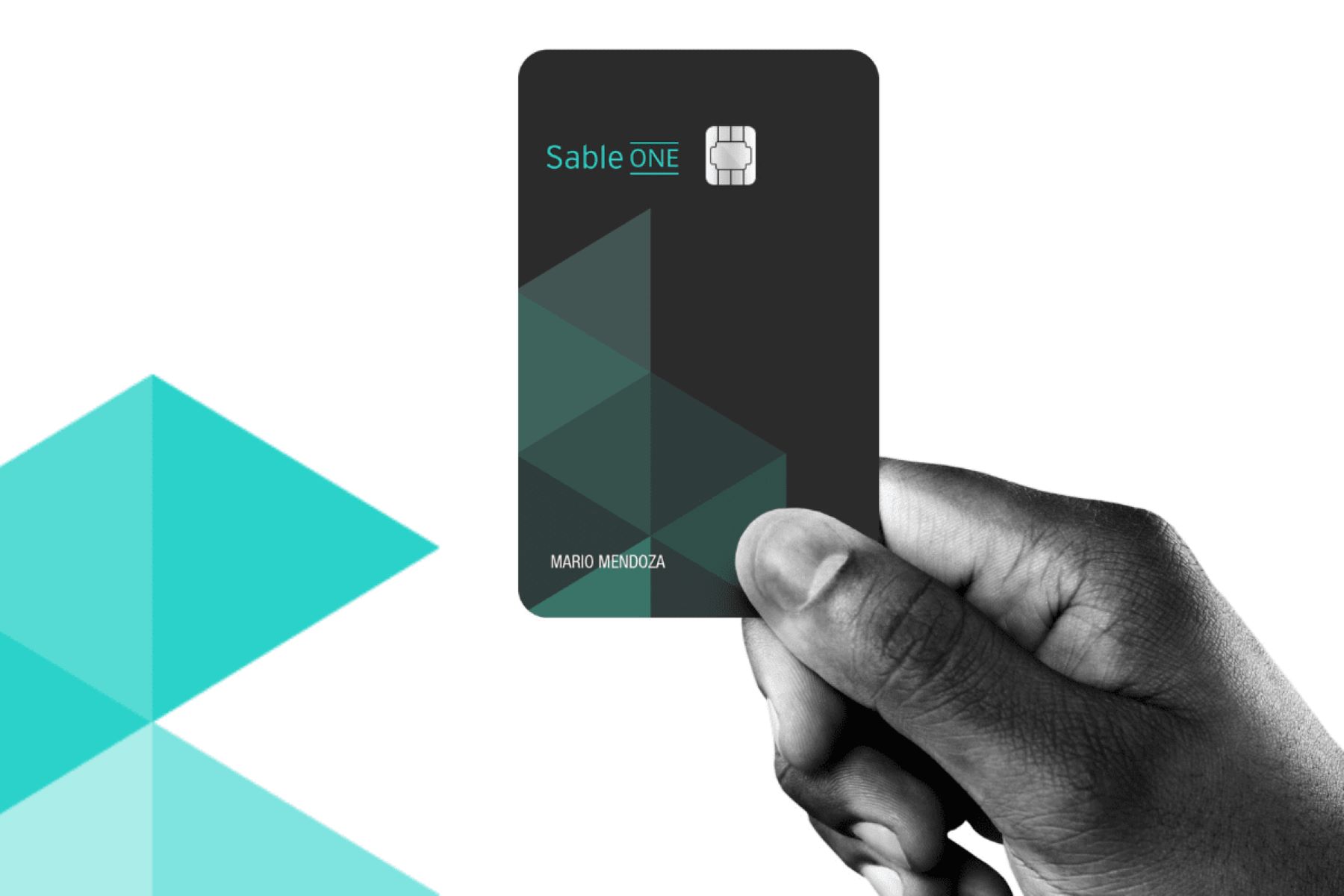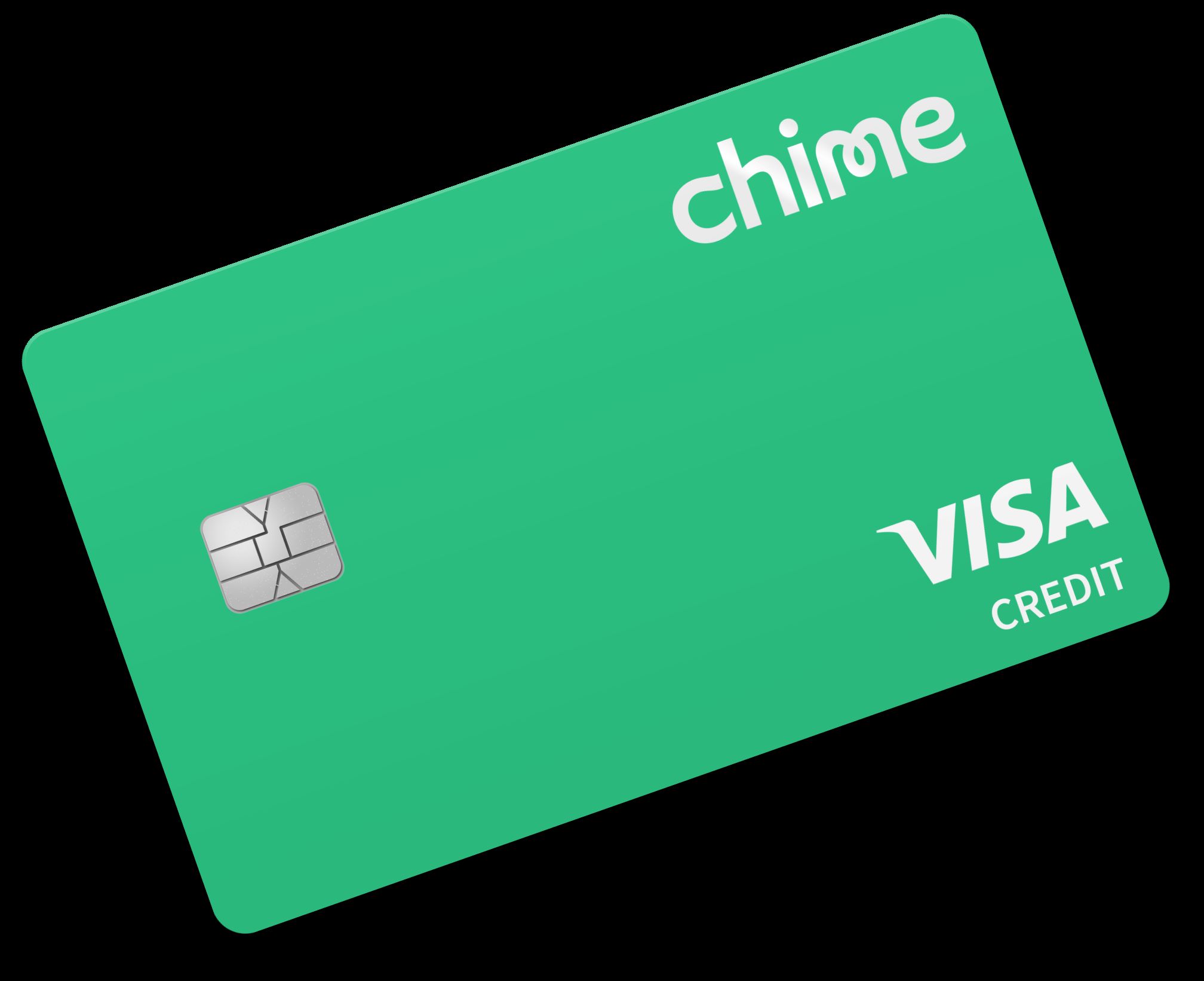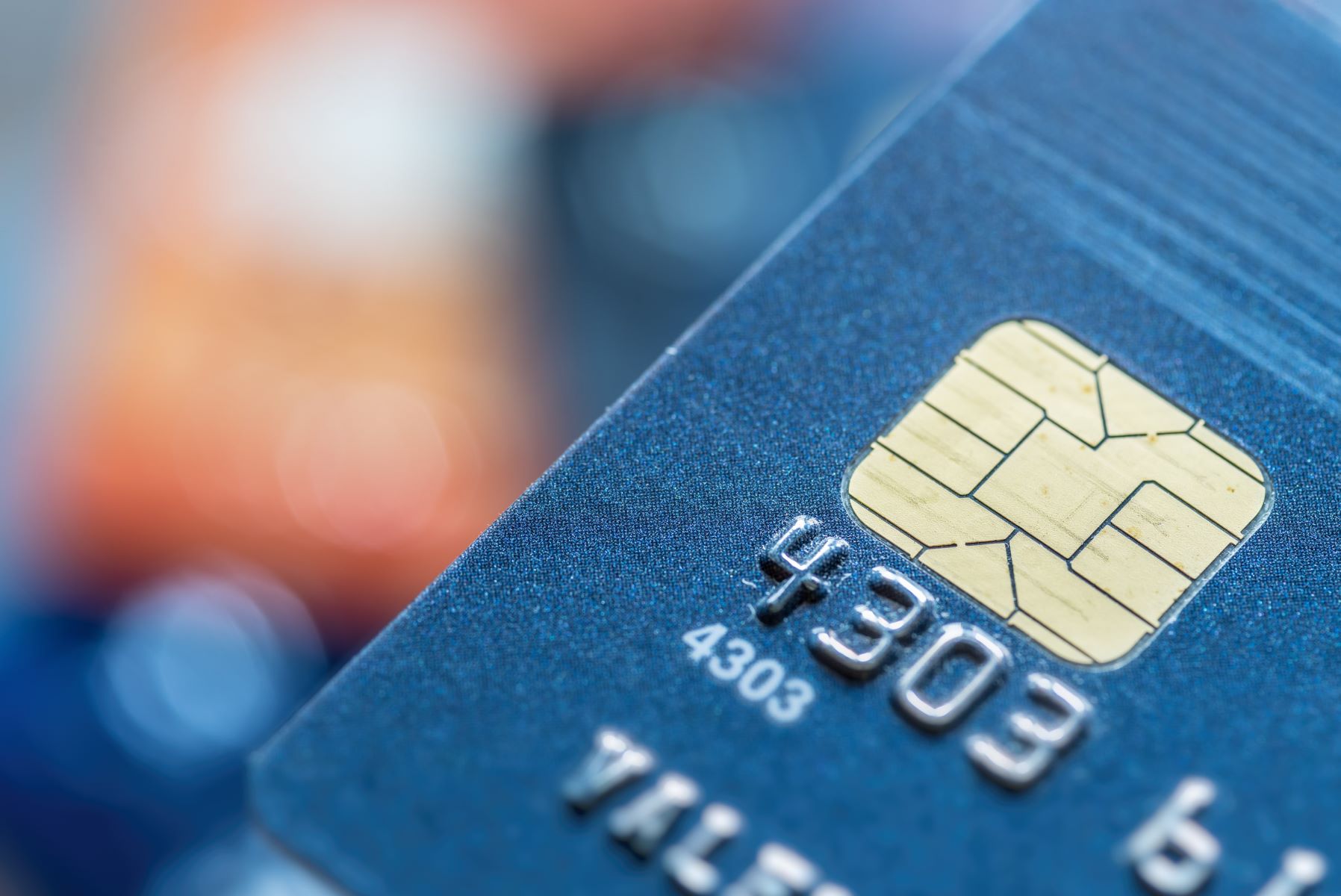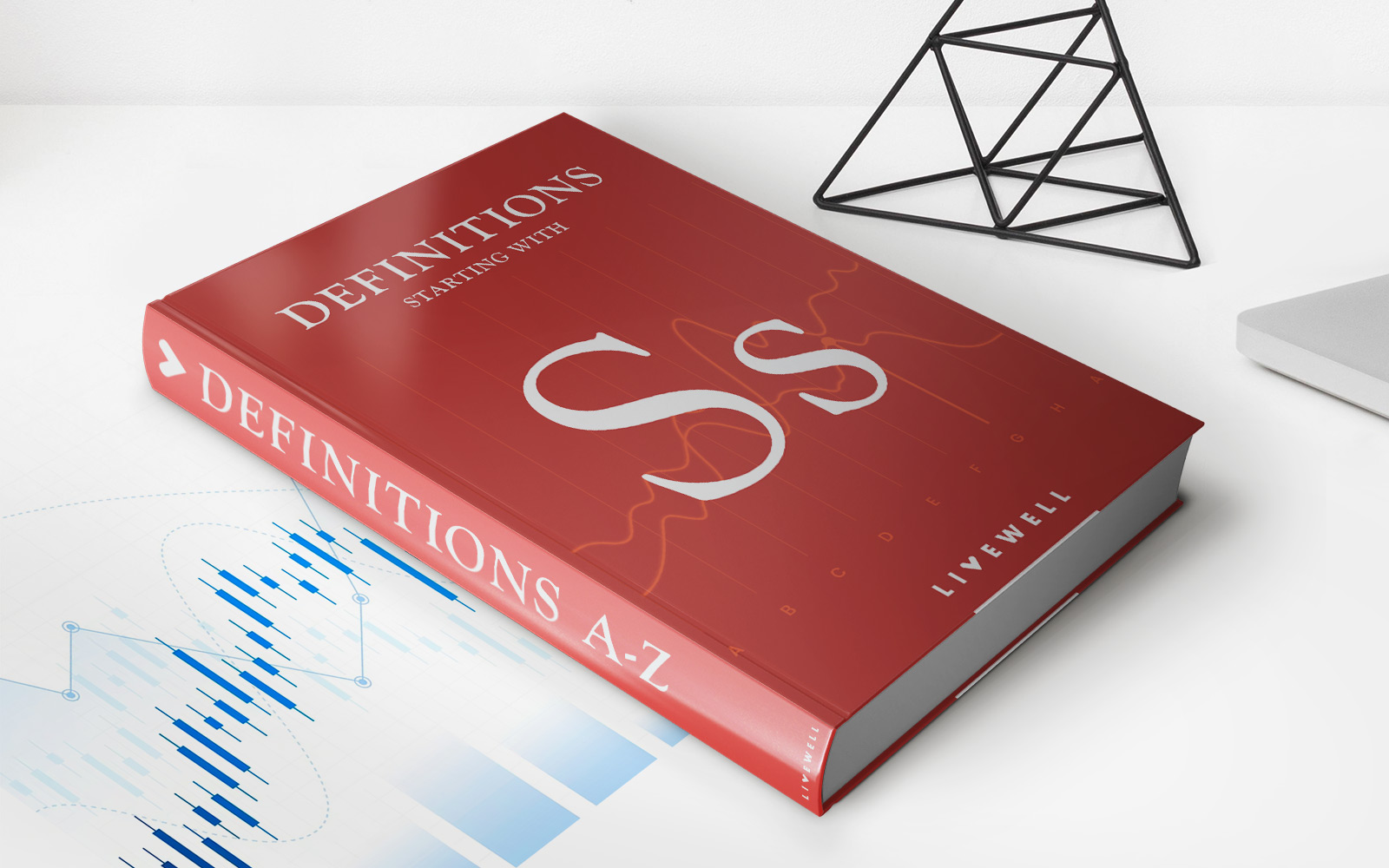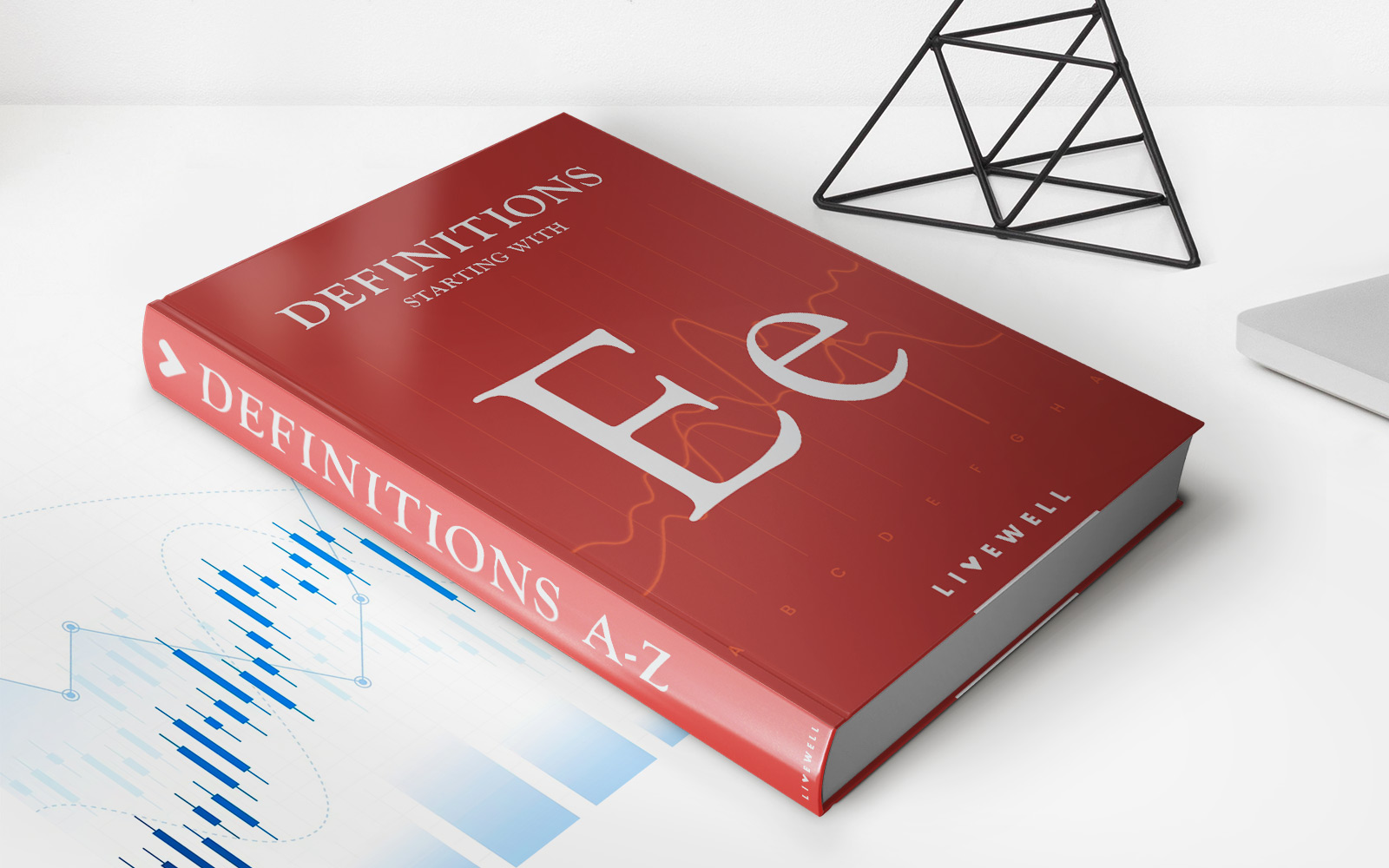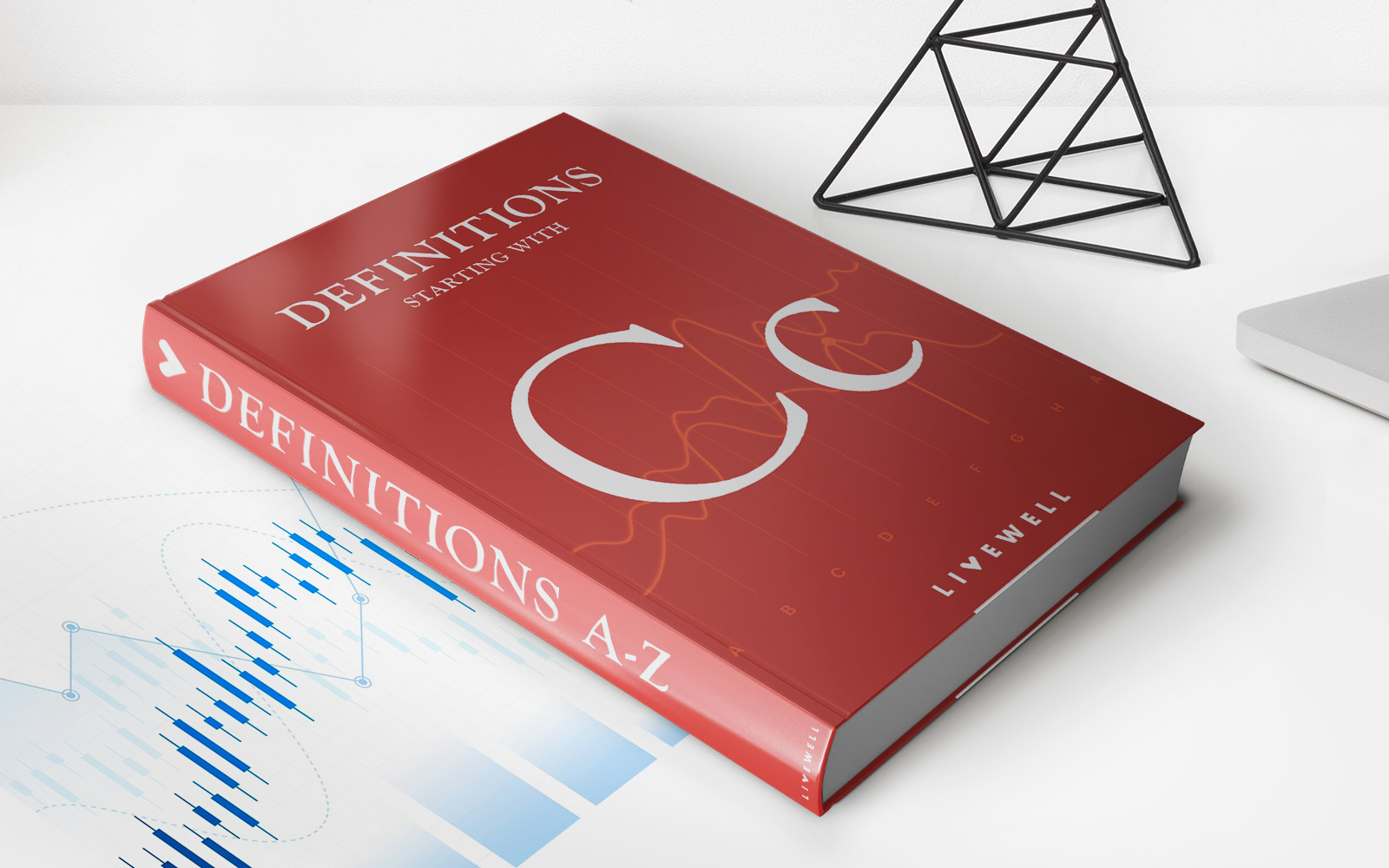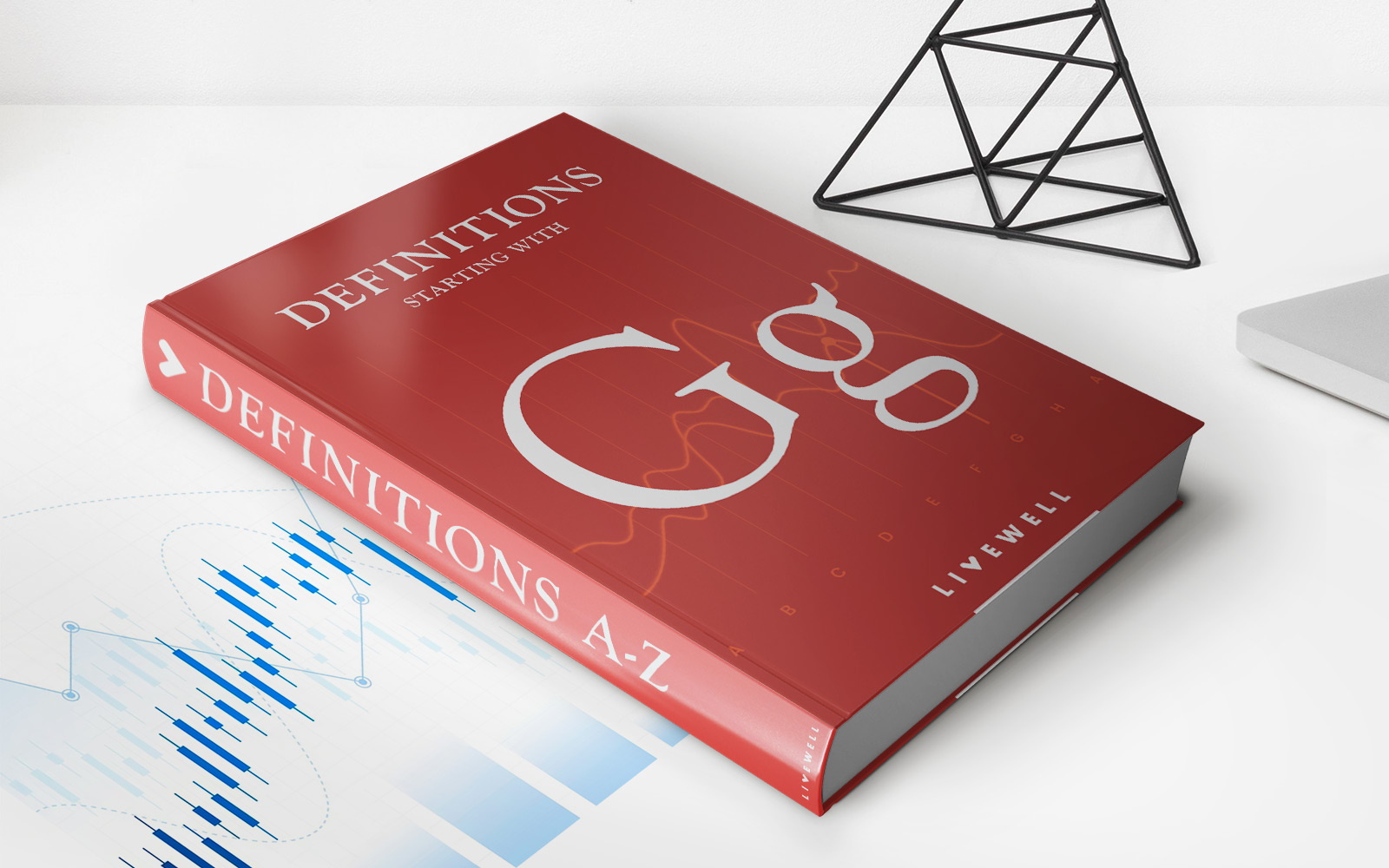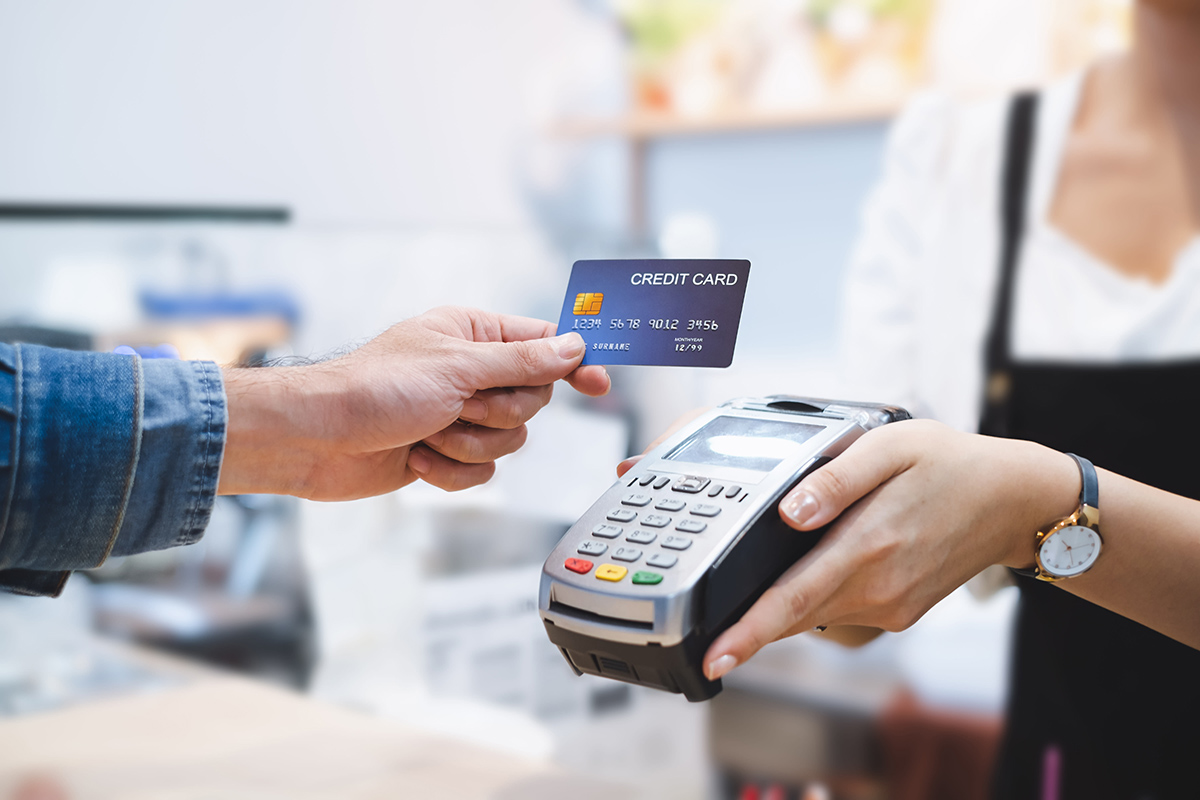

Finance
How Does A Credit Card Work
Modified: March 5, 2024
Learn how credit cards work and the ins and outs of managing your finances on Yahoo. Explore our comprehensive guide on finance and credit card tips today.
(Many of the links in this article redirect to a specific reviewed product. Your purchase of these products through affiliate links helps to generate commission for LiveWell, at no extra cost. Learn more)
Table of Contents
- Introduction
- What is a credit card?
- Types of credit cards
- Applying for a credit card
- Credit card features and benefits
- How does a credit card work?
- Credit card payment process
- Credit card interest rates and fees
- Credit card security measures
- Managing credit card debt
- Tips for responsible credit card usage
- Conclusion
Introduction
In today’s modern financial landscape, credit cards have become an integral part of our daily lives, offering convenience, flexibility, and a range of benefits. Whether you’re making online purchases, booking travel accommodations, or simply paying for day-to-day expenses, credit cards provide a secure and efficient method of payment. But have you ever wondered how credit cards actually work? How do they enable us to make purchases without physically handing over cash?
In this article, we will explore the fascinating world of credit cards, delving into their functionality and demystifying the processes behind them. From understanding the different types of credit cards to comprehending the intricacies of the payment system, we will provide you with a comprehensive guide to the inner workings of credit cards.
Whether you’re a seasoned cardholder looking to deepen your knowledge or a newcomer considering your first credit card, this article will equip you with the vital information needed to navigate the world of credit cards with confidence.
What is a credit card?
A credit card is a financial tool that allows individuals to borrow money from a financial institution, typically a bank, to make purchases or pay for services. Unlike a debit card, which directly accesses funds from your bank account, a credit card provides a line of credit that you can use up to a certain limit set by the issuer.
When you use a credit card, you are essentially borrowing money from the credit card issuer to make your purchase. The amount you borrow, also known as your credit card balance, needs to be repaid within a specified period, usually on a monthly basis, or you can choose to pay the minimum payment amount.
Credit cards offer a wide range of benefits beyond basic purchasing power. They provide an opportunity to build credit history, which is a crucial component when applying for loans or mortgages. Additionally, many credit cards offer rewards programs, such as cashback, travel points, or discounts, incentivizing cardholders to use their cards for various transactions.
Credit cards are accepted globally, making them a convenient payment option for both online and in-person transactions. They also provide an added layer of security, as opposed to carrying large amounts of cash.
It’s important to note that while credit cards offer financial flexibility and convenience, they also require responsible usage. Failure to repay the borrowed amount can lead to high-interest charges, late fees, and a negative impact on your credit score, which may affect your ability to obtain credit in the future.
Types of credit cards
Credit cards come in various types, each catering to different financial needs and lifestyles. Understanding the different types of credit cards can help you choose the one that aligns with your spending habits and goals. Let’s explore some common types of credit cards:
- Rewards Credit Cards: These cards offer rewards for every dollar spent. Rewards can come in the form of cashback, travel points, or discounts. They are an excellent choice for individuals who make frequent purchases and want to maximize benefits.
- Travel Credit Cards: Designed for frequent travelers, travel credit cards offer travel-related perks such as airline miles, hotel points, airport lounge access, and travel insurance. They often have partnerships with specific airlines or hotel chains, allowing cardholders to earn and redeem rewards with their preferred travel partners.
- Balance Transfer Credit Cards: These cards allow you to transfer high-interest debt from one credit card to another with a lower interest rate. They can help consolidate debt and save on interest charges, especially during promotional periods with low or 0% interest rates on the transferred balance.
- Student Credit Cards: These cards are specifically designed for students over the age of 18 who are either in college or university. They may have lower credit limits and provide educational resources to help students learn about responsible credit card usage.
- Secured Credit Cards: Secured credit cards are an option for individuals with limited or poor credit history. To obtain a secured card, you must provide a cash deposit as collateral, which also determines your credit limit. Secured cards can help rebuild credit and eventually qualify for unsecured credit cards.
These are just a few examples of the types of credit cards available. It’s important to research and compare the features, rewards, fees, and interest rates associated with each type to find the card that best suits your needs and financial situation.
Applying for a credit card
Applying for a credit card is a straightforward process, but there are several important factors to consider before submitting your application. Follow these steps to ensure a smooth and successful credit card application:
- Evaluate your needs: Determine why you want a credit card and what features or benefits are most important to you. Consider factors such as rewards, interest rates, annual fees, and credit limits.
- Check your credit score: Your credit score plays a vital role in the credit card application process. Lenders use it to assess your creditworthiness. A higher credit score can increase your chances of approval and may qualify you for better terms and rewards.
- Research credit card options: Compare different credit cards from various issuers to find the one that aligns with your needs. Pay attention to interest rates, fees, rewards programs, and any special promotions.
- Gather necessary documents: Typically, you’ll need to provide proof of identification, such as a driver’s license or passport, proof of income, such as pay stubs or tax returns, and possibly proof of residence, such as a utility bill. Check the specific requirements of the issuer you’re applying to.
- Fill out the application: Complete the credit card application form with accurate and up-to-date information. Double-check the details before submitting to avoid errors or omissions that could delay or impact the approval process.
- Submit the application: Most credit card applications can be submitted online or by mail. Follow the instructions provided by the issuer and ensure all required documents are included.
- Wait for a response: The credit card issuer will review your application and perform a credit check. The approval process can take anywhere from a few minutes to a few weeks, depending on the issuer’s procedures.
- Receive and activate your card: If your application is approved, you will receive the credit card in the mail. Follow the instructions to activate the card, typically by calling a specified number or through an online platform.
It’s important to note that applying for multiple credit cards within a short period can negatively affect your credit score. Only apply for cards that you genuinely need and have a realistic chance of being approved for.
By following these steps and being mindful of your financial goals and responsibilities, you can navigate the credit card application process with confidence and find a card that fits your needs.
Credit card features and benefits
Credit cards come with a multitude of features and benefits that can enhance your financial experience and provide added value. Understanding these features can help you make the most of your credit card usage. Let’s explore some common credit card features and benefits:
- Rewards programs: Many credit cards offer rewards programs that allow you to earn cashback, travel points, or discounts on eligible purchases. These rewards can be redeemed for various benefits, such as statement credits, gift cards, travel accommodations, or merchandise.
- Introductory offers: Some credit cards offer introductory promotions, such as low or 0% interest rates for a specified period, waived annual fees for the first year, or bonus rewards for reaching a spending threshold. These offers can provide significant savings and added value, especially if utilized wisely.
- Travel perks: Travel-focused credit cards often come with travel-related benefits, such as airline lounge access, travel insurance coverage, concierge services, and the ability to earn and redeem points with partner airlines, hotels, or car rental companies.
- Consumer protection: Credit cards provide consumer protection against fraudulent transactions, unauthorized charges, and defective merchandise. If you encounter any issues with a purchase, your credit card issuer can assist in resolving the dispute or provide a refund.
- Extended warranties and purchase protection: Some credit cards extend the manufacturer’s warranty on eligible purchases, offering additional coverage. They may also provide purchase protection, reimbursing you for qualified purchases damaged or stolen within a specified period.
- Flexible repayment options: Credit cards offer flexibility in how you choose to repay your balance. While it’s typically best to pay the full balance to avoid interest charges, credit cards allow you to pay the minimum payment or set up a repayment plan that suits your financial situation.
- Accessibility and acceptance: Credit cards are widely accepted globally, making them a convenient payment option for in-person and online transactions. They eliminate the need to carry large amounts of cash and provide a secure method of payment.
It’s essential to review the specific features and benefits of the credit cards you’re considering to determine which aligns best with your needs and preferences. Keep in mind that not all credit cards offer the same features, and the availability of certain benefits may depend on your creditworthiness and the specific terms and conditions of the card issuer.
How does a credit card work?
Understanding how a credit card works can help you make informed financial decisions and avoid any potential pitfalls. Here is a breakdown of the key aspects of a credit card:
Credit limit: When you are approved for a credit card, the issuer assigns you a credit limit, which is the maximum amount you can borrow. The credit limit is determined based on various factors, including your income, credit history, and the issuer’s criteria. It’s important to stay within your credit limit to avoid over-limit fees and potential negative effects on your credit score.
Charging purchases: With a credit card, you can make purchases up to your credit limit. When you use your card for a transaction, the issuer pays the merchant on your behalf, and the amount you spend is added to your credit card balance.
Statement period: The credit card statement period typically lasts for one month. During this period, your purchases and any other charges, such as annual fees or interest, are recorded. At the end of the statement period, the issuer generates a statement that outlines the balance owed.
Minimum payment: Credit cards usually require you to make a minimum payment each month, which is a small percentage of the total balance. Although making the minimum payment keeps your account in good standing, it’s important to note that carrying a balance can result in high-interest charges over time.
Interest charges: If you don’t pay your credit card balance in full by the due date, the remaining balance is subject to interest charges. The interest rate, also known as the Annual Percentage Rate (APR), determines the cost of borrowing. It’s crucial to understand your card’s interest rate and factor it into your repayment strategy.
Grace period: Many credit cards offer a grace period, which is the time between the statement date and the due date. During this period, you have the opportunity to pay your balance in full without incurring any interest charges. However, if you carry a balance forward, interest charges will apply from the date of each purchase.
Credit card fees: Credit cards may come with various fees, such as annual fees, late payment fees, over-limit fees, and cash advance fees. It’s important to review the terms and conditions of your credit card to understand the fees associated with it.
By understanding how credit cards work and being aware of the terms and conditions, you can make mindful decisions about your spending, repayment, and overall credit card usage.
Credit card payment process
Understanding the credit card payment process is vital for managing your finances effectively and avoiding unnecessary fees or interest charges. Here are the key steps involved in the credit card payment process:
- Statement generation: At the end of each billing cycle, your credit card issuer will generate a statement that outlines your transactions, fees, and current balance.
- Statement delivery: The statement is usually delivered to you either electronically, through your online banking account, or by mail to your registered address. Make sure to review the statement carefully to verify its accuracy.
- Minimum payment: The statement will specify the minimum payment amount required for the billing cycle. It is typically a small percentage of your total balance. Paying only the minimum amount due helps you avoid late payment fees and keep your account in good standing.
- Payment due date: The statement will also indicate the due date by which the payment must be made to avoid late payment penalties. It’s essential to make your payment on or before this date to maintain a positive credit history.
- Payment options: Credit card issuers provide various payment methods, including online payments, automatic payments, mail-in payments, or in-person payments at a branch. Choose the option that is most convenient for you, ensuring the payment is made on time.
- Interest charges: If you carry a balance on your credit card and don’t pay it in full by the due date, interest charges will accrue on the remaining balance. These charges will be reflected in your next statement.
- Repayment strategies: While paying the minimum amount is the minimum requirement, it’s generally advisable to pay your balance in full each month to avoid interest charges. If you can’t pay the full balance, paying more than the minimum can help reduce your overall interest costs.
- Payment allocation: When you make a payment, it is typically allocated towards interest charges, fees, and then the remaining balance. Some issuers may have specific rules regarding payment allocation, so check with your issuer to understand how your payments are applied.
- Payment processing time: Keep in mind that it may take a few business days for your payment to be processed and reflected in your account balance. It’s essential to make your payment well in advance of the due date to ensure it is received on time.
By staying organized, making timely payments, and understanding the payment process, you can effectively manage your credit card payments and maintain a healthy financial situation.
Credit card interest rates and fees
Credit cards come with various interest rates and fees that can impact your overall cost of borrowing and credit card usage. It’s crucial to understand these rates and fees to make informed financial decisions. Here are some key aspects to consider:
Interest rates: The interest rate, also known as the Annual Percentage Rate (APR), is the cost of borrowing money on your credit card. It is expressed as a percentage and applies to any unpaid balance that carries over from one billing cycle to the next. Credit card interest rates can vary significantly depending on your creditworthiness and the type of credit card you have. It’s essential to review your card’s APR and consider how it may impact your repayment strategy.
Annual fees: Some credit cards charge an annual fee for the benefits and perks they offer. Annual fees can range from a few dollars to several hundred dollars, depending on the card’s features. Before applying for a credit card, consider whether the benefits outweigh the annual fee and align with your spending habits or preferences.
Late payment fees: If you fail to make the minimum payment or pay your credit card bill after the due date, you may be charged a late payment fee. Late payment fees can vary among issuers, so it’s important to prioritize timely payments to avoid additional costs and potential negative impacts on your credit score.
Over-limit fees: If you exceed your credit limit, you may be charged an over-limit fee. However, it’s important to note that some credit cards offer the option to opt-out of over-limit transactions, meaning that if you try to make a purchase that exceeds your credit limit, it will simply be declined instead of incurring an over-limit fee.
Cash advance fees: When you use your credit card to withdraw cash from an ATM or get a cash advance, you may be subject to cash advance fees. Cash advance fees are typically charged as a percentage of the cash advance amount and often have higher interest rates than regular purchases. It’s generally advisable to avoid cash advances unless absolutely necessary, as they can be costly.
Foreign transaction fees: If you use your credit card for purchases made in a foreign currency or outside of your home country, you may be charged foreign transaction fees. These fees are typically a percentage of the transaction amount and can add up, especially if you frequently travel internationally or make online purchases from foreign merchants.
It’s important to review and understand the specific interest rates and fees associated with your credit card. This knowledge will help you make informed decisions, manage your card effectively, and minimize unnecessary costs. Consider comparing different credit card options to find one with favorable rates and fees that align with your financial goals and spending habits.
Credit card security measures
In an increasingly digital world, credit card security is a paramount concern for cardholders and issuers alike. To safeguard against fraud and unauthorized access, credit card companies have implemented numerous security measures. Here are some common credit card security measures:
- EMV chip technology: Many credit cards now feature embedded EMV chips. These chips generate a unique transaction code for each purchase, making it significantly more difficult for fraudsters to clone or counterfeit cards.
- Card validation: Credit cards often come with a three- or four-digit Card Verification Value (CVV) or Card Verification Code (CVC) on the back of the card. These codes provide an additional layer of security for card-not-present transactions, such as online or mail-order purchases.
- Two-factor authentication: Some credit card issuers have implemented two-factor authentication (2FA) for online transactions. This requires users to provide a second form of verification, such as a One-Time Password (OTP), sent via text message or generated by a mobile app, to authorize a transaction.
- Fraud monitoring: Credit card companies employ advanced fraud monitoring systems that track and analyze card activity in real-time. Unusual or suspicious transactions can trigger alerts or temporary card suspensions. Cardholders are typically notified to confirm their transaction’s legitimacy.
- Zero liability policies: Many credit card issuers offer zero liability policies, protecting cardholders from unauthorized transactions. If your card is lost or stolen and unauthorized charges are made, you are typically not held responsible for those charges.
- Secure online transactions: To ensure secure online transactions, credit card issuers adopt secure socket layer (SSL) encryption technology. SSL encrypts the information transmitted between the cardholder and the merchant, making it difficult for hackers to intercept and decipher the data.
- Mobile wallet integration: Mobile wallet services, such as Apple Pay, Google Pay, or Samsung Pay, use tokenization to enhance security. Tokenization replaces actual card details with a unique token during the transaction, adding an extra layer of protection and reducing the risk of card information being compromised.
- Card replacement and notifications: If your credit card is lost, stolen, or compromised, most issuers provide a quick and easy process to report the incident and request a new card. Additionally, many credit card companies offer real-time notifications via mobile apps or SMS alerts to keep you informed about transaction activities.
While credit card security measures provide a significant level of protection, it’s important for cardholders to remain vigilant. Regularly review your credit card statements, monitor your account activity, and promptly report any suspicious or unauthorized transactions to your card issuer.
Managing credit card debt
Managing credit card debt is essential for maintaining a healthy financial situation and avoiding unnecessary interest charges. Here are some strategies to help you effectively manage your credit card debt:
- Create a budget: Start by assessing your income and expenditures. Create a budget that outlines your monthly income, expenses, and debt repayment goals. This will help you allocate funds towards paying off your credit card debt and prevent overspending.
- Prioritize payment: Make it a priority to pay more than the minimum payment due on your credit card. By paying more, you can reduce the principal balance faster and minimize interest charges over time. Consider implementing the avalanche or snowball method to target high-interest debts or debts with smaller balances first, respectively.
- Consolidate your debt: If you have multiple credit cards with high-interest rates, consider consolidating your debt into a single loan or balance transfer credit card with a lower interest rate. This can simplify your repayment process and potentially save money on interest charges.
- Avoid new debt: While paying off your existing credit card debt, avoid accumulating new debt. Stick to your budget and only use your credit card for necessary expenses that you can afford to pay off in full each month. This will prevent your debt from increasing further.
- Negotiate with your issuer: If you’re struggling to meet your debt obligations, reach out to your credit card issuer. They might be willing to work out a repayment plan or provide assistance to help you manage your debt. Don’t hesitate to ask for options that might reduce your interest rate or waive certain fees temporarily.
- Explore credit counseling: Credit counseling can provide valuable guidance and support for managing your credit card debt. Credit counselors can help you create a personalized debt management plan, negotiate with creditors, and provide financial education to improve your money management skills.
- Track your progress: Monitor your progress regularly to stay motivated. Keep track of your debt repayment journey and celebrate milestones along the way. Seeing your progress can help you stay focused and committed to reaching your goal of becoming debt-free.
- Seek professional advice if needed: If your credit card debt becomes overwhelming or you find it challenging to manage on your own, consider consulting with a financial advisor or debt relief specialist. They can provide personalized advice and assistance based on your specific situation.
Remember, managing credit card debt requires discipline and perseverance. By implementing these strategies and staying committed to your repayment goals, you can regain control of your finances and work towards a debt-free future.
Tips for responsible credit card usage
To make the most of your credit card and maintain a healthy financial position, it’s important to adopt responsible credit card usage habits. Here are some tips to help you use your credit card responsibly:
- Create a monthly budget: Establish a budget that outlines your income and expenses. This will help you plan your spending and ensure that you allocate funds for credit card payments.
- Pay your balance in full: Whenever possible, aim to pay off your credit card balance in full each month. By doing so, you can avoid paying interest charges and maintain a positive credit history.
- Avoid carrying a high balance: If you cannot pay off your balance in full, make an effort to keep your credit utilization low. Ideally, aim to keep your credit card balance below 30% of your credit limit. High balances can negatively impact your credit score and increase the amount of interest you’ll owe.
- Pay on time: Ensure that you make your credit card payments on time. Late payments can result in late fees, increased interest rates, and may have a negative impact on your credit score. Consider setting up automatic payments or setting reminders to avoid missing due dates.
- Monitor your transactions: Regularly review your credit card statements and transactions to identify any errors, unauthorized charges, or potential fraudulent activity. Promptly report any discrepancies to your credit card issuer to protect yourself from financial loss.
- Be mindful of fees: Familiarize yourself with the fees associated with your credit card, including annual fees, late payment fees, cash advance fees, and foreign transaction fees. Avoid unnecessary fees by understanding the terms and conditions of your card and making informed decisions.
- Protect your card information: Keep your credit card information secure. Avoid sharing your card details with unauthorized individuals or on unsecured websites. Be cautious when conducting online transactions and ensure that you are on secure websites before entering your card information.
- Review your credit card benefits: Take the time to understand the benefits and rewards offered by your credit card. Maximize your card’s potential by utilizing its rewards program, travel perks, or cashback offers. Regularly review the terms and conditions to stay informed about any changes or updates to the benefits.
- Practice self-control: Use your credit card responsibly by making mindful purchase decisions. Avoid impulsive buying and only charge items that you can afford to pay off within a reasonable timeframe.
- Stay informed: Keep up to date with changes in credit card policies, interest rates, and any updates from your credit card issuer. This will allow you to make informed decisions and adapt your credit card usage accordingly.
By following these tips, you can establish responsible credit card habits, build a positive credit history, and make the most of the benefits and convenience that credit cards offer.
Conclusion
Credit cards have revolutionized the way we make purchases and manage our finances. Understanding how credit cards work and adopting responsible credit card usage habits are key to maximizing their benefits while avoiding unnecessary debt and fees.
In this article, we have explored the intricacies of credit cards, from their basic functionality to the various types available in the market. We’ve discussed the importance of evaluating your needs, applying for a credit card wisely, and leveraging the features and benefits. Additionally, we’ve delved into the payment process, interest rates, security measures, and effective strategies for managing credit card debt.
By creating a budget, paying on time, staying mindful of fees, and using credit cards responsibly, you can harness the convenience and rewards that credit cards offer while maintaining a healthy financial position. It’s essential to stay informed about your credit card terms, monitor your transactions regularly, and protect your card information to mitigate the risk of fraud or unauthorized use.
Remember, credit cards are powerful financial tools that can enhance your purchasing power and provide valuable benefits. However, they require responsible usage and careful financial management. Use your credit card wisely, stay within your means, and prioritize timely payments to maintain a positive credit history and take control of your financial future.
